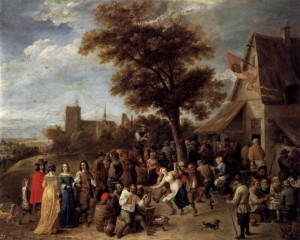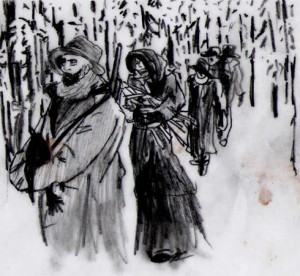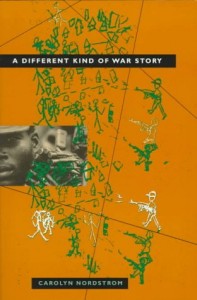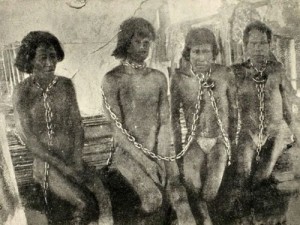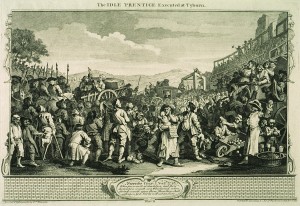 Hay, Douglas et al. 1975. Albion’s Fatal Tree: Crime and Society in Eighteenth-Century England. New York: Pantheon Books.
Hay, Douglas et al. 1975. Albion’s Fatal Tree: Crime and Society in Eighteenth-Century England. New York: Pantheon Books.
In the preface of Albion’s Fatal Tree the authors explain that their main concern is the law in eighteenth century England as both ideology and actuality. “We are equally concerned with criminality itself, the offences, the offenders and the popular myths of offenders (such as highwaymen and smugglers) as part-hero, part dreadful moral exemplars” (13). Though noting the real difference between “social crimes”—the socially accepted (if vaguely) kind, e.g. poachers, rioters, smugglers—and unqualified crimes, the authors admit the inability of separating the two. Continue reading


